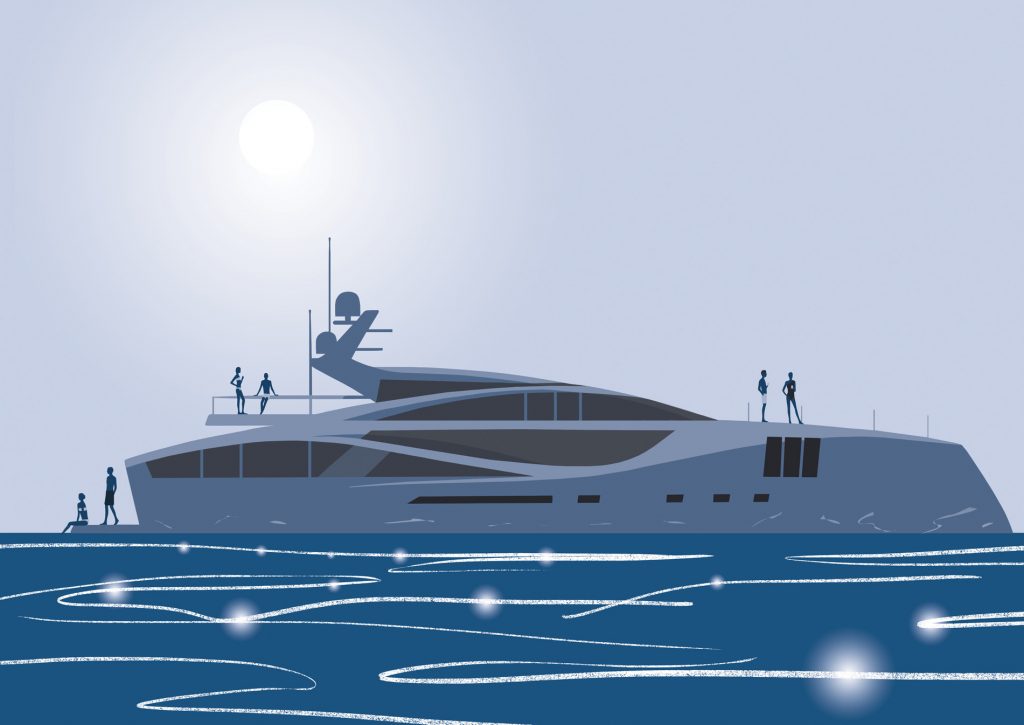On 16 September 2021, the Court of Justice of the European Union has decided on case no. C-341/20. With this, the EU Court has stated the infringement of Article 14, paragraph 1, letter c) of the Directive no. 2003/96/EC restructuring the Community framework for the taxation of energy products and electricity by the Italian State.
According to Article 14, paragraph 1 letter c) of the Directive 2003/96/EC the European Union allows the Member States to exempt from taxation energy products supplied for use as fuel for the purposes of navigation within Community waters (including fishing), other than private pleasure craft, and electricity produced on board a craft.
Previously the Italian legislator has transposed the EU Directive into Italian law with Legislative Decree no. 26/07, amending Legislative Decree no.504/95, which is also a Consolidated Act on Taxation of Production and Consumption by providing in Article 24.1 and in Annex I, Table A, point 3 for excise duty on fuel exemption applied for navigation in general, excluding navigation of pleasure crafts.
Further, the Italian Ministry of Foreign Affairs has implemented the above-mentioned tax provision, providing in the Ministerial Decree no.225/15 Article 1.6 for that the charterer/lessor automatically benefits from the exemption from excise duty on fuel for private pleasure crafts by virtue only of entering into a charter/leasing agreement, irrespective of boat’s actual use.
According to the EU Court’s statement, the Italian legislation constitutes a flagrant breach of Article 14, paragraph 1, letter c) of the Directive 2003/96 because this grants the benefit of the excise duty on fuels exemption by generally referring to the commercial nature of the activity carried on by the charterer or lessor instead of taking into consideration the actual use of the vessel by the final user.
In particular, the Court pointed out that the purpose of the EU provision is to tax energy products on the basis of their actual use and not to introduce general exemptions, in particular when the end use of the boat is “for recreational purposes” (Article 47 of the Recreational Craft Code under Legislative Decree 171/05).
The only exception to the taxation rule accepted by the European Court is that of so-called mini-cruises, i.e., contracts where the charterers “are only passengers without any control over the use of the vessel” (C-341/20, p. 42 and 43).
However, in practice, this exemption is very rare since charter clients are unlikely to be willing to pay very high amounts of money without having any say in using the chartered vessel.
The Italian State now has the legal obligation to fully implement the EU Court’s condemnation judgment, which implies the amendment, by the Ministry for Foreign Affairs, of Article 1 of Ministerial Decree 225/15 resulting in the abolition of the exemption and immediate collection of excise duty on fuels used by pleasure boats subject to a rental agreement.
The collection concerns the current year 2021 and, in accordance with Article 15 of the Consolidated Act no.504/95, which provides a five-year limitation period for the Customs Agency’s recovery action, the tax years 2017 to 2020.
It is up to the European Commission to make sure that the Court’s ruling is respected within the deadline. Suppose the first judgment is not complied with, in that case, the Commission may then bring a second action before the Court of Justice which, under Article 260 of the EU Treaty, may result in a judgment condemning the Italian State to pay a “lump sum” and/or a “penalty payment” for each day’s delay, penalties which may amount, on the basis of similar precedents, to several million euros.
Secondly, the Italian Court of Auditors would also have valid reasons for intervening, given that the exemption from excise duties condemned by the EU Court of Justice has resulted in a loss of revenue to the Treasury, which certainly amounts to hundreds of millions of euros.
Under current legislation, the Court of Auditors could intervene to verify whether the Ministry has timely collected excise tax on fuel from companies offering pleasure boat charters.
In addition, there is a twofold ‘loss to the Treasury’: the possible loss to the Italian State resulting from a second judgment of the Court of Justice and the certain loss to the Treasury caused by the failure to recover the excise duty from the charter/leasing companies.
For more information on this please contact:
Gianfranco Puopolo
Partner/Head of Yachting Team
E.: g.puopolo@pglegal.it
Domenico Rinaldi
Partner/Tax Specialist
E.: d.rinaldi@pglegal.it
